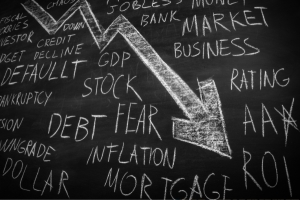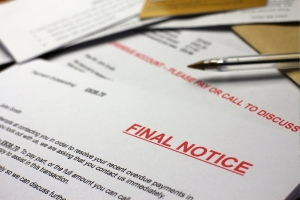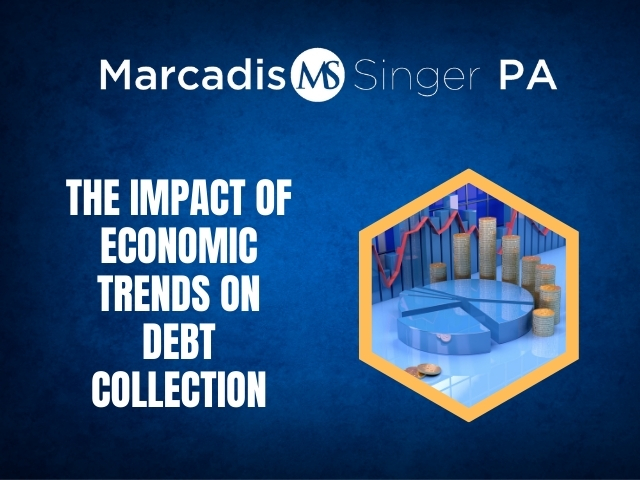In a recent survey, nearly 60% of small business owners cited economic conditions as one of the biggest challenges facing their debt collection efforts. This statistic underscores the significant impact that economic trends can have on the ability of businesses and creditors to effectively collect outstanding debts.
Economic Trends and Their Impact on Debt Collection

Economic trends, such as inflation, interest rates, and consumer spending patterns, are inextricably linked to debt collection practices. During periods of economic growth, consumers and businesses may have more disposable income, making it easier to collect outstanding debts. However, during times of recession or economic downturn, debt collection can become more challenging as individuals and companies struggle with financial constraints.
The following is a DRAMATIZATION AND IS NOT AN ACTUAL EVENT: Consider the case of a retail business that experienced a significant increase in delinquent accounts during the COVID-19 pandemic. As consumers faced job losses and reduced incomes, their ability to repay debts was severely impacted, leading to a rise in uncollected accounts for the retailer.
Understanding and adapting to these economic trends is crucial for creditors and debt collectors to optimize their efforts and minimize financial losses.
The Consequences of Ignoring Economic Trends
Failing to account for economic trends in debt collection strategies can have severe consequences, including significant financial losses, reduced cash flow, and decreased profitability.
The following is a DRAMATIZATION AND IS NOT AN ACTUAL EVENT: A large manufacturing company failed to adjust its debt collection approach during a period of high inflation, leading to a decrease in the real value of the outstanding debts it collected. As a result, the company faced cash flow challenges and struggled to meet its own financial obligations.
By ignoring economic trends, creditors and debt collectors risk employing ineffective strategies that may alienate debtors, resulting in further delinquencies and potential legal disputes.
Effective Debt Collection Strategies in Different Economic Climates
A skilled debt collection or creditors’ rights attorney can provide invaluable guidance in navigating different economic conditions and tailoring debt collection strategies accordingly.
During periods of economic growth, an attorney may recommend more aggressive collection tactics, such as litigation or asset seizures, to capitalize on debtors’ increased ability to pay. Conversely, in times of recession or financial hardship, a more flexible and empathetic approach, such as payment plans or debt restructuring, may be more appropriate.
Additionally, an experienced attorney can leverage data analysis and technology to identify economic patterns and adjust debt collection efforts accordingly. Legal expertise is also crucial in ensuring compliance with evolving regulations and debt collection laws, which may be influenced by economic factors.
Debt collection attorneys ensure their strategies comply with legal regulations by meticulously staying updated on relevant laws, rigorously training their staff, and implementing comprehensive compliance programs to avoid any legal pitfalls in the debt recovery process.
Conclusion
Economic trends play a pivotal role in the success of debt collection efforts. By understanding and adapting to changing economic conditions, businesses and creditors can optimize their strategies, minimize financial losses, and maintain a healthy cash flow.
At Marcadis Singer PA, our team of skilled debt collection and creditors’ rights attorneys possess a deep understanding of economic trends and their impact on debt collection practices. We combine our legal expertise with data-driven insights to develop customized strategies that align with the prevailing economic climate, ensuring our clients’ interests are protected and their collection efforts are maximized.
Don’t let economic trends undermine your debt collection efforts.
Contact Marcadis Singer PA Law today at (813) 288-1881 to schedule a consultation. Our experienced attorneys will work closely with you to develop a tailored debt collection strategy that accounts for economic factors, maximizing your chances of successful recovery while minimizing risks and losses.
Frequently Asked Questions

1. How can a debt collection attorney help me adapt to changing economic conditions?
A skilled debt collection attorney can provide valuable insights and strategies to help you adapt your debt collection efforts to changing economic conditions. This may include adjusting collection tactics, offering payment plans or debt restructuring options, leveraging data analysis tools, and ensuring compliance with evolving regulations influenced by economic factors.
2. What are some effective debt collection strategies during economic downturns?
During economic downturns or recessions, effective debt collection strategies may include a more empathetic and flexible approach, such as offering payment plans or debt restructuring options. Additionally, an attorney may recommend focusing on high-value debts and prioritizing accounts based on risk assessment. Communication and negotiation skills are also crucial in these challenging economic times.
3. How can data analysis and technology help with debt collection efforts?
Data analysis and technology can play a significant role in optimizing debt collection efforts based on economic trends. By leveraging data analytics tools, attorneys and debt collectors can identify patterns, segment debtors based on their ability to pay, and adjust collection strategies accordingly. Technology can also streamline communication, automate certain processes, and improve overall efficiency.
